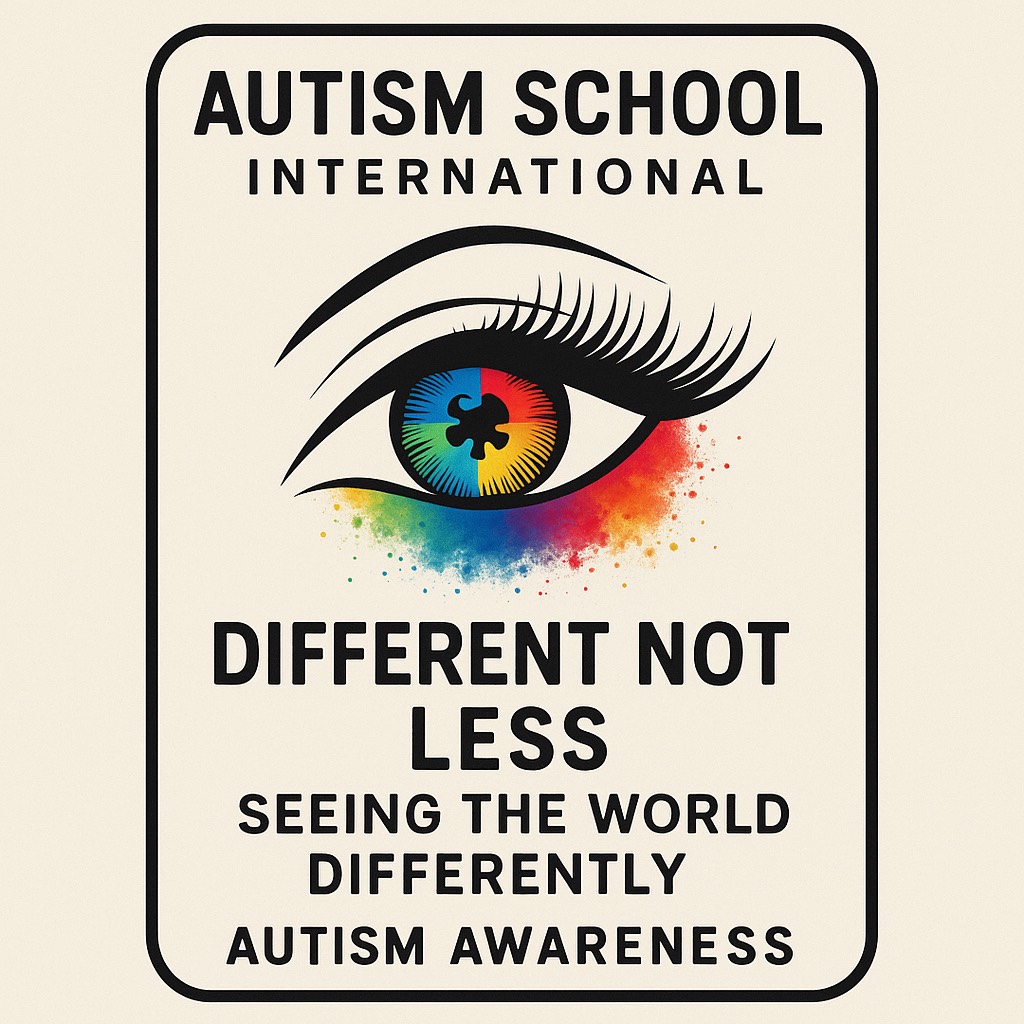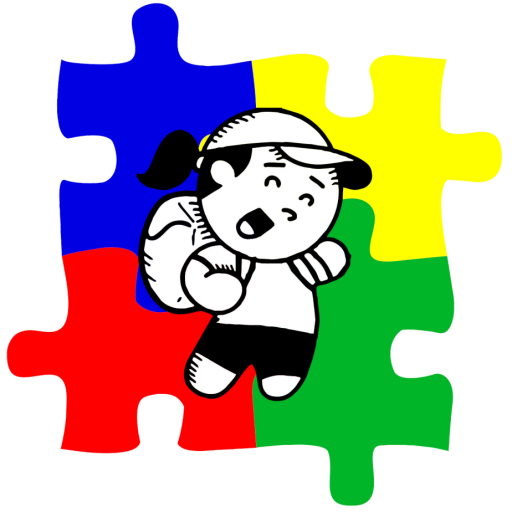🌍 Autism School International
Autism Awareness – Different Not Less – Seeing the World Differently
1. Autism Awareness
Autism Spectrum Disorder (ASD) is not an illness but a neurodevelopmental condition that affects how people perceive the world, communicate, and interact. Awareness means:
-
Understanding that autism exists on a spectrum—each person’s strengths and challenges are unique.
-
Dispelling myths: autism is not caused by poor parenting, “bad behavior,” or something to be “cured.”
-
Recognizing that early intervention, acceptance, and inclusive education make a huge difference in the lives of autistic individuals.
Awareness is the first step to acceptance.
2. Different, Not Less
Every child and adult on the spectrum has potential. The phrase “Different, not less” reminds us to:
-
Focus on abilities, not limitations—autistic individuals often show strengths in memory, creativity, focus, honesty, and problem-solving.
-
Embrace neurodiversity: just as biodiversity makes the natural world rich, diverse minds make humanity stronger.
-
Create spaces where differences are celebrated, not stigmatized.
Being different does not make one less valuable, less intelligent, or less human.
3. Seeing the World Differently
Autistic people often experience the world in unique ways—through heightened senses, deep focus, or alternative communication styles. This perspective can:
-
Inspire creativity in arts, science, technology, and innovation.
-
Teach society patience, empathy, and new ways of thinking.
-
Show us that diversity in perception is a gift, not a weakness.
When we learn to see the world differently, we discover beauty we might otherwise miss.
4. Unlearn & Reduce Stigma
To build inclusive societies, we must unlearn harmful stereotypes:
-
Autism is not “strange” or “abnormal”—it’s a natural variation of human wiring.
-
Non-verbal does not mean non-thinking—many non-verbal individuals communicate in powerful alternative ways.
-
Independence looks different for everyone; support should be personalized, not standardized.
Stigma often arises from fear and ignorance. Education, empathy, and advocacy break this cycle.
5.


Call to Action
-
Educate: Schools, churches, workplaces, and communities must learn about autism.
-
Empower: Provide opportunities for autistic individuals to thrive academically, socially, and professionally.
-
Embrace: Celebrate every person as created with dignity, purpose, and potential.
✨ Final Message:
Autism Awareness reminds us that knowledge leads to compassion.
“Different, not less” reminds us that diversity is strength.
“Seeing the world differently” invites us to open our hearts to new ways of living, learning, and loving.

